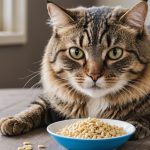Meeting Nutritional Needs: Are Plant-Based Diets Ideal for Your Domestic Rabbit?
When it comes to caring for your domestic rabbit, one of the most critical aspects is ensuring they receive a balanced and nutritious diet. With the rising interest in plant-based diets for pets, many owners are wondering if such diets are suitable for their furry friends. In this article, we will delve into the nutritional needs of rabbits, explore the feasibility of plant-based diets, and provide practical advice on how to keep your rabbit healthy and thriving.
Understanding Rabbit Nutrition
Rabbits are herbivores, and their dietary needs are quite specific. Here are some key points to consider:
Also to discover : Is It Safe for Dachshunds to Compete in Dog Sports While Protecting Their Backs?
Hay: The Cornerstone of Rabbit Diet
Hay is the most essential component of a rabbit's diet, making up 80-90% of their daily intake. Hay provides the necessary fiber for digestive health and helps maintain dental health by wearing down their continuously growing teeth.
Fresh Vegetables and Fruits
In addition to hay, rabbits benefit from a variety of fresh vegetables and limited amounts of fruits. Leafy greens like kale, spinach, and lettuce are excellent choices, while fruits should be given in small amounts due to their high sugar content.
In parallel : Ultimate Guide to Safeguarding Your Patterdale Terrier’s Ears: Effective Cleaning and Maintenance Tips
Pellets: A Supplement, Not a Main Course
Rabbit pellets can be a useful supplement but should not replace hay and fresh vegetables. Pellets are formulated to provide specific nutrients, but over-reliance on them can lead to nutritional imbalances. It is recommended to feed pellets in limited quantities, especially for adult rabbits.
The Role of Plant-Based Diets
Plant-based diets for rabbits can be highly effective if properly formulated. Here’s what you need to know:
Amino Acids and Protein
Rabbits require a diet rich in amino acids, which can be sourced entirely from plants. However, it is crucial to ensure that the diet includes all essential amino acids, as rabbits cannot synthesize them all on their own.
Fiber Content
High fiber content is critical for rabbits, as it supports their digestive health and prevents issues like gastrointestinal stasis. Plant-based diets can easily meet these fiber requirements through hay, vegetables, and certain grains.
Vitamins and Minerals
Plant-based diets must be fortified with the necessary vitamins and minerals that rabbits need. For example, vitamin D and calcium are essential for bone health, and these can be provided through fortified foods or specific plant sources.
Benefits of Plant-Based Diets for Rabbits
There are several benefits to feeding your rabbit a well-formulated plant-based diet:
Improved Digestive Health
A diet high in fiber from plant sources helps maintain a healthy gastrointestinal tract, reducing the risk of digestive issues such as constipation and gastrointestinal stasis.
Enhanced Immune System
Certain plant-based ingredients, like oregano essential oil, have been shown to enhance the immune system of rabbits by improving hematological parameters and reducing stress indicators.
Better Hygiene and Meat Quality
For rabbits raised for meat, plant-based diets supplemented with oregano essential oil can improve the hygiene and quality of the meat by inhibiting bacterial growth and reducing slime formation on carcasses.
Practical Tips for Feeding Your Rabbit a Plant-Based Diet
Here are some practical tips to ensure your rabbit is well-fed on a plant-based diet:
Feed a Variety of Hay
Offer unlimited amounts of fresh grass hay, such as timothy hay, orchard hay, or oat hay. This ensures your rabbit gets the fiber it needs and helps prevent boredom.
Include a Range of Fresh Vegetables
Provide a variety of fresh vegetables daily, including leafy greens, carrots, bell peppers, and cucumbers. Avoid giving too much of high-starch vegetables like potatoes and peas.
Limit Fruits
Fruits should be given in small amounts due to their high sugar content. Safe fruits include berries, apples, and bananas, but always remove seeds and pits.
Use Fortified Pellets Wisely
If you choose to include pellets in your rabbit’s diet, ensure they are fortified with necessary vitamins and minerals. However, always follow the feeding instructions to avoid overfeeding.
Comparison of Different Diets
Here is a comparative table highlighting the key differences between a traditional rabbit diet and a well-formulated plant-based diet:
| Diet Component | Traditional Rabbit Diet | Well-Formulated Plant-Based Diet |
|---|---|---|
| Hay | 80-90% of diet | 80-90% of diet |
| Fresh Vegetables | Included but variable | Varied and abundant |
| Fruits | Limited | Limited |
| Pellets | Often high in protein and calcium | Fortified, limited quantity |
| Fiber Content | High | High |
| Protein Source | Can include animal products | Plant-based amino acids |
| Vitamins and Minerals | Added during pellet production | Fortified in plant-based foods |
| Digestive Health | Supported by hay and fiber | Supported by high fiber content |
| Immune System | Variable | Enhanced with certain plant ingredients |
Real-Life Examples and Anecdotes
Many pet owners have successfully transitioned their rabbits to plant-based diets with positive outcomes. Here are a few examples:
-
Uniform Nutrition: One of the benefits of using a product like Oxbow Essentials Adult Rabbit Food is that it provides uniform nutrition, preventing selective eating tendencies. This ensures your rabbit gets all the necessary nutrients without the risk of nutritional imbalances.
-
Enhanced Health: Some studies and anecdotal evidence suggest that rabbits fed plant-based diets supplemented with oregano essential oil show improved health parameters, including better hematological values and reduced stress indicators.
Common Mistakes to Avoid
When transitioning your rabbit to a plant-based diet, here are some common mistakes to avoid:
-
Insufficient Fiber: Ensuring high fiber content is critical. Low fiber diets can lead to digestive issues and other health problems.
-
Overfeeding Pellets: While pellets can be a useful supplement, overfeeding can lead to obesity and other health issues. Always follow the recommended feeding guidelines.
-
Lack of Variety: Providing a variety of fresh vegetables and hay is essential to prevent boredom and ensure all nutritional needs are met.
A well-formulated plant-based diet can be an excellent choice for your domestic rabbit, provided it meets all the necessary nutritional requirements. Here are some key takeaways:
- Hay is Essential: Ensure your rabbit has unlimited access to fresh grass hay.
- Variety is Key: Provide a range of fresh vegetables and limit fruits.
- Fortified Foods: Use fortified pellets or plant-based foods to ensure all necessary vitamins and minerals are included.
- Avoid Common Mistakes: Ensure high fiber content, avoid overfeeding pellets, and provide a variety of foods.
By following these guidelines and understanding the specific nutritional needs of your rabbit, you can help your pet lead a healthy, happy life.
Final Tips and Recommendations
Here are some final tips and recommendations for feeding your rabbit a plant-based diet:
Consult with a Veterinarian
Before making any significant changes to your rabbit’s diet, consult with a veterinarian to ensure the new diet meets all nutritional requirements.
Monitor Health
Regularly monitor your rabbit’s health, including weight, stool quality, and overall behavior, to ensure the diet is working well.
Provide Fresh Water
Ensure your rabbit always has access to fresh, clean water.
Avoid Toxic Plants
Be aware of plants that are toxic to rabbits, such as avocado, chocolate, and certain houseplants, and keep them out of reach.
By following these tips and being mindful of the nutritional needs of your rabbit, you can create a healthy and balanced plant-based diet that your pet will thrive on.











